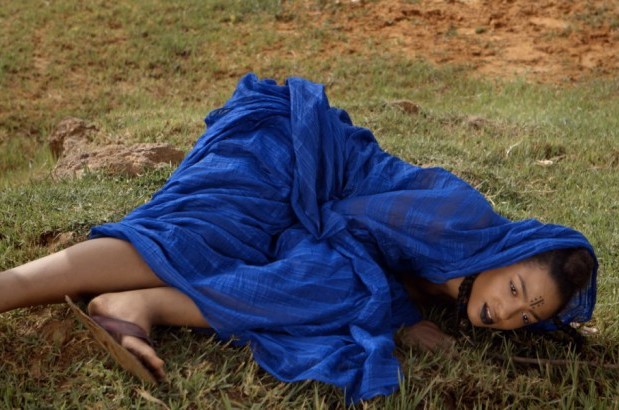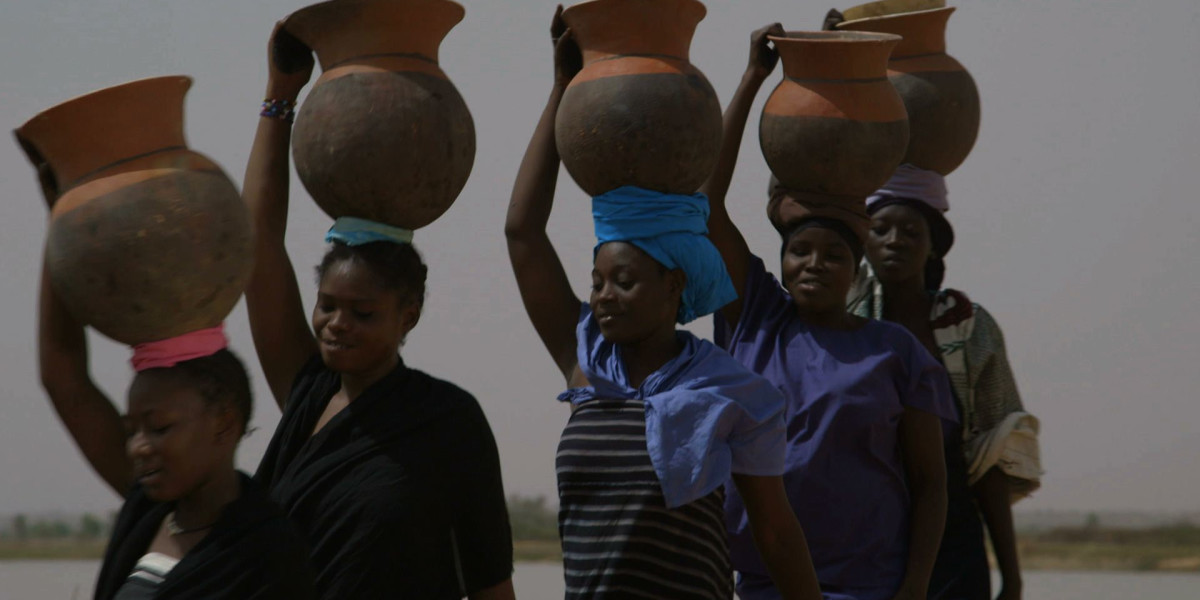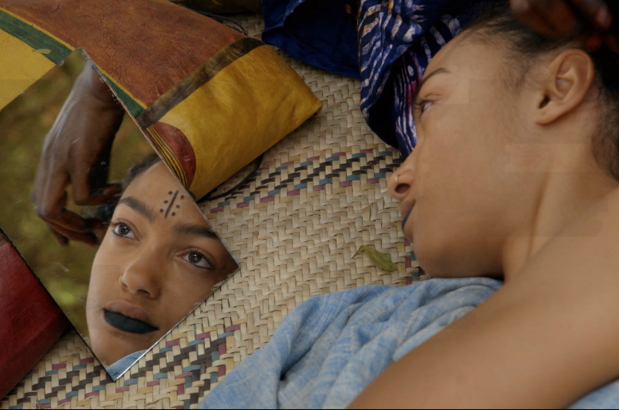JOE JACKSON places The Wedding Ring within the context of important depictions of female identity in African cinema.
The Wedding Ring is, according to Film Africa, ‘a film about female empowerment that also doesn’t shirk from the uncomfortable realities of Western influence on African cultures’. Rahmatou Keïta’s exploration of the Sahelian people, from Niger, centers on a conflict between modernity and tradition brought about by the return of Tiyaa from university abroad.
A whistle-stop tour of the continent’s filmic landscape reveals that collisions between African heritage and inundations of Western culture are pivotal in shaping notions of female identity. Formidable film scholar Dovey asserts that African cinema has been, from its earliest days, ‘a markedly feminist or womanist body of work’. The following films might be considered closer to womanism than feminism in their depictions of socio-politically marginalised black women, but in the words of Alice Walker womanism is aligned to feminism ‘as purple is to lavender’.

The Wedding Ring draws on several significant African films that deal with female identities. The first of these is Ousmane Sembène’s La Noire De… (1966). Although Sembène’s title ‘The Father of African Cinema’, seems counter-feminist, his films deconstruct patriarchal frameworks. In La Noire De… the promise of modernised Antibes and the white bourgeoisie lifestyle fatally disappoint its protagonist, the maid Diouana, whereas in her native Dakar she is restless, unfulfilled and detached. Similarly, The Wedding Ring sees intelligent and aristocratic Tiyaa frustrated by the sedentary way of life in Niger’s Sultinate of Zinder. However, she is simultaneously disillusioned by Western sensibilities, returning from university with a troubled heart, a taste for premarital sex and a torn identity.
Then came the mothers of African cinema, notably Sarah Maldoror and Safi Faye. Moldoror’s debut Monangambee in 1968 tells the story of a poor woman’s resilience as she visits her imprisoned husband. ‘Both in Europe and in Africa,’ declared Maldoror, ‘woman remains the slave of man. That is why she must liberate herself’. This battle-cry was heard by Safi Faye. A talented enthnologist, Faye’s 1983 documentary Selbe And So Many Others follows a 39-year-old Senegalese lady who works to support her eight children while her absent husband purportedly searches for work elsewhere. The promise of marital bliss ingrained in Senegalese tradition seems hollows as Selbe slowly reveals the extent of the emotional damage engendered by her husband’s socially-acceptable behavior.

In 1973, Djibril Diop Mambety’s Touki Bouki adapted the Soviet montage theory to create Lynchean avant guarde effects which specifically dealt with the African-Western dialectic. The identity of protagonist Anta is torn between the sacred and the sacrilegious, presented through startlingly disparate sequences. The exploration of Anta’s divided identity provides a crucial context for the presentation of Tiyaa in The Wedding Ring, stuck in a conflict between modernity and tradition in the same way as Anta. In dealing with her lost love, Tiyaa overcomes pride, and scepticism and turns to a zimma (a local wise-man) who offers spiritual guidance by looking at the elements.
Early filmic innovations of Sembène, Faye, Maldoror and Mambety paved the way for generations of politically-conscious female filmmakers. Kenya in particular has had a notable wave of exciting female directors since the noughties: Hawa Essuman, Judy Kibinge and Wanuri Kahiu (who recently released the brilliant Pumzi) lead the charge with their flavour of dark social realism and gritty portrayals of disturbed suburbia. This tradition seems important to Keïta because of the comparative scarcity of filmmaking in her native Niger.
Like so many other African heroines/anti-heroines before her, Keïta’ s Tiyaa is a self-made woman who, far from perfect, recognises and learns from mistakes, possessing an indefatigable determination to shape her own destiny despite overwhelming obstacles. A gift from cinema’s modern mother, Keïta’s new film is the latest in a rich tradition of empowering African films. In this film, Diouana and Anta’s categorical refusals to remain passive in the face of adversity are transported to present-day Niger.
Negotiating tensions between cultures past and present is the crux for shaping female identity in the best of African film. Keïta’ s most recent version deserves to be viewed firmly among the best.
Film Africa is screening ‘The Wedding Ring’ on Thursday 3rd of November, 20.45 at Hackney Picturehouse. More information and the entire Film Africa programme are available here.





